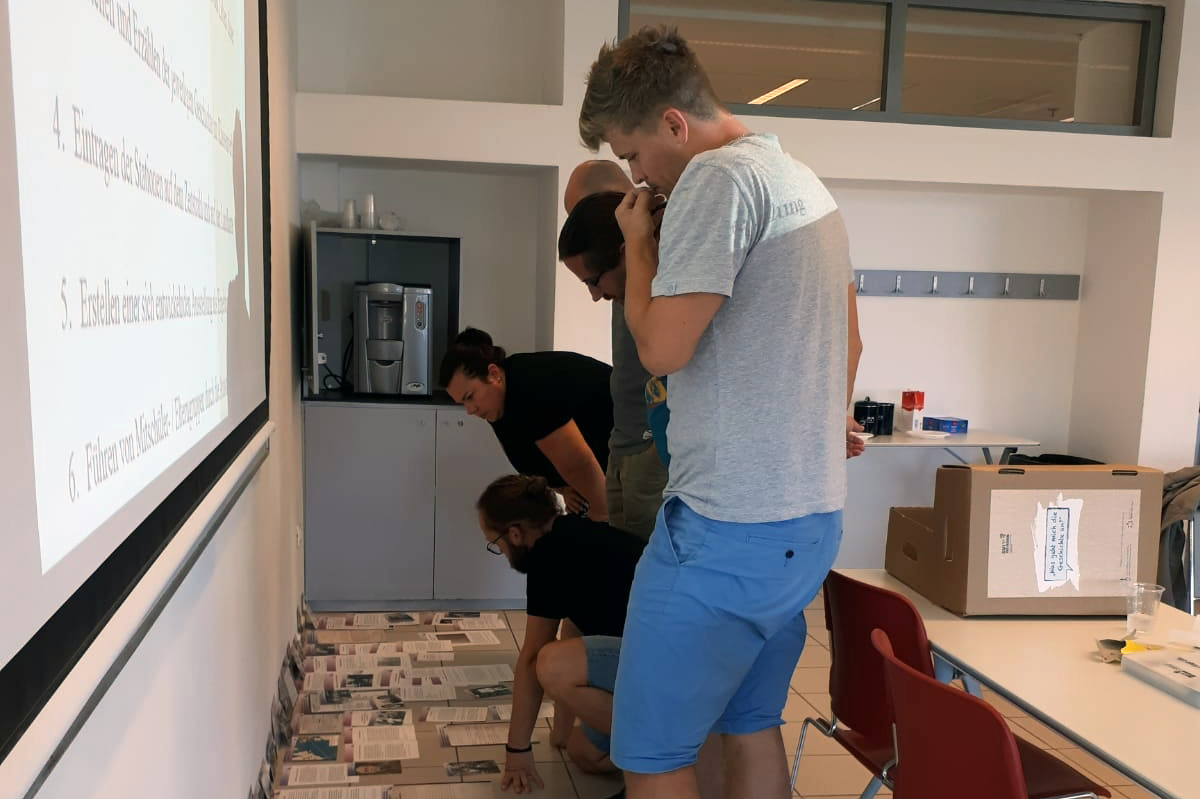
Students participating in educational seminar at Yad Vashem's International School of Holocaust Studies
“An 11-year-old Tennessee girl who told her classmates to stop making the Nazi salute was sent to the principal’s office.” This was the headline of an article that appeared on the internet yesterday.
The principal and the teachers at the school thought this fifth-grade girl was being “disrespectful,” since children at the McFadden School of Excellence in Murfreesboro, Tennessee, had been giving Nazi salutes in the hallways and at recess for weeks as part of a “Living History” program. The school later agreed that the actions of the students were “completely inappropriate.”
Let’s understand why this is an issue: The Nazi salute was a symbol of public allegiance to Hitler, the leader of the Nazi party. Because of its complete and total identification with the Nazis and thus with hate speech, it was banned by the new democratic German government at the end of WWII. The Hitler salute bears with it the lasting expression of terror and persecution experienced by many groups in Nazi Germany – not least the Jews of Europe, of whom an unprecedented six million were murdered during the Holocaust.
Thus the young student, instead of being sent to the principal, should be applauded. She is an inspiration – not just because she defied the cruel Nazi salute and refused to be intimated by it, but because she was not passive in the face of her classmates’ insensitive actions. Only 11 years old, she recognized and took a stand against a stark symbol of hate and murder.
This is why there is a need for good Holocaust education. By "good," I mean that Holocaust education should do more than just teach about the Holocaust; it should fight against the harm wrought by unrestrained hatred and violence. It should call on students to examine their words, their actions and their choices. Teachers are on the front lines of this challenging – but vital – mission.
Thankfully there are excellent resources to support teachers in this mission, such as "Echoes & Reflections", a powerful partnership of three world leaders in Holocaust education: the ADL, USC Shoah Foundation, and Yad Vashem, the World Holocaust Remembrance Center. Yad Vashem brings to the table its research-based approaches to teaching about the history of the Holocaust, including antisemitism. Three decades of experience contributed by the International School for Holocaust Studies at Yad Vashem roots "Echoes & Reflections" in critical historical inquiry, including understanding the long history of antisemitism as a precursor to the Holocaust.
Students studying with "Echoes & Reflections" learn about prejudice, racism and antisemitism. Moreover, evaluation studies indicate transformations among students whose teachers use "Echoes & Reflections" – data shows that they exhibit notable increases in critical thinking and understanding of others from different backgrounds, and are significantly more likely to recognize that one person can make a difference against stereotyping and bias.
Helping students understand the consequences of their actions is one of the foremost responsibilities of educators, of schools and of communities. Good, effective and relevant Holocaust education can play a major role and have far-reaching consequences in building a more tolerant, sensitive society.









